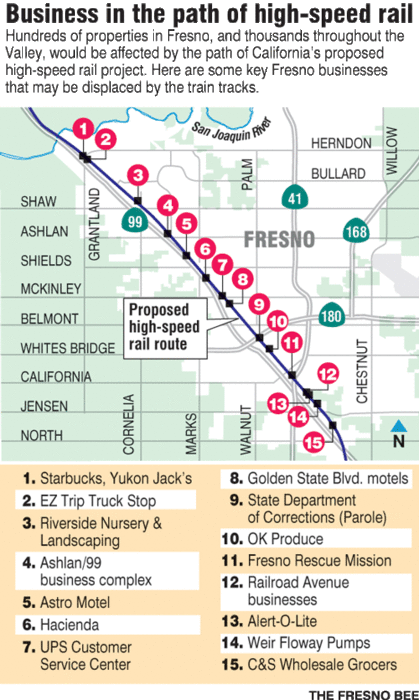 |
| The California Legislature is called to order. |
Democrats live in a Socialist Big Government Fantasyland
- Socialist Democrats introduce bill after bill to jack up taxes.
The
California Chamber of Commerce released its annual list of “job killer” bills, calling attention to the negative impact that 32 proposed measures would have on California’s job climate and economic recovery if they were to become law.
“California policy makers should keep their focus on the number one issues affecting their constituents – economic recovery and job creation,” said CalChamber President and CEO Allan Zaremberg.
“Each of these proposed Job Killer bills would increase uncertainty for employers and investors and lead to higher costs of doing business, which will undermine the economic health of the state. Employers are already feeling the pinch of higher health care premiums, higher workers' compensation premiums, increased unemployment insurances taxes, and general tax increases. In this environment, it is critical that we keep all other costs of doing business in check. Individually these bills are bad but cumulatively they are worse.”
Legislation included on the “job killer” list released today will change throughout the year as bills are amended or new language is introduced.
The 2013 “job killer” list follows:
Costly Workplace Mandates
AB 5 (Ammiano; D-San Francisco) Increased Exposure to Frivolous Litigation — Imposes costly and unreasonable mandates on employers that could jeopardize the health and safety of others by creating a new protected classification of employees and customers who are or are perceived to be homeless, low income, suffering from a mental disability, or physical disability, and establishing a private right of action for such individuals that includes statutory damages, punitive damages, and attorney’s fees.
AB 10 (Alejo; D-Salinas) Automatic Minimum Wage Increase — Unfairly increases California employers’ cost of doing business by raising the minimum wage $1.25 over the next three years and thereafter indexing the minimum wage based on inflation, which fails to take into account the current economic status of the state or other fees and costs employers are required to pay.
AB 1138 (Chau; D-Alhambra) Massive Exposure to Civil Penalties and Liability — Inappropriately increases civil cases and civil penalties on employers by permitting civil action against those employers who fail to conspicuously post a list of every employee covered under an employer’s workers’ compensation insurance policy and to retain this list for five years.
SB 404 (Jackson; D-Santa Barbara) Expansion of Discrimination Litigation — Makes it virtually impossible for employers to manage their employees and exposes them to a higher risk of litigation by expanding the Fair Employment and Housing Act to include a protected classification for any person who is, perceived, or associated with a family caregiver.
SB 626 (Beall; D–San Jose) Massive Workers’ Compensation Cost Increase — Unravels many of the employer cost-saving provisions in last year’s workers’ compensation reform package and results in employers paying nearly $1 billion in benefit increases to injured workers without an expectation that the increases will be fully offset by system savings.
SB 761 (DeSaulnier; D-Concord) Paid Family Leave Protection — Creates a new burden on small businesses and additional opportunities for frivolous litigation by transforming the paid family leave program, which is used as a wage replacement for an employee who is taking a separate leave of absence, into an additional paid protected leave.
Economic Development Barriers
AB 59 (Bonta; D-Alameda) Split Roll Parcel Tax — Potentially increases the tax burden on businesses by permitting local agencies to assess a higher parcel tax on commercial property than residential property overturning an appellate decision that determined such taxes were unconstitutional.
AB 188 (Ammiano; D-San Francisco) Split Roll Change of Ownership — Unfairly targets commercial property by redefining “change of ownership” so that such property is more frequently reassessed, which will ultimately lead to higher property taxes that will be passed onto tenants, consumers, and potentially employees.
AB 288 (Levine; D-San Rafael) De Facto Moratorium on Hydraulic Fracturing — Imposes a de facto moratorium on the use of hydraulic fracturing in the state, driving up fuel and energy prices and harming the job market in these sectors, by basing approval of notices for well operations on a public health and safety standard that is impossible to meet.
AB 649 (Nazarian; D-Studio City) Moratorium on Hydraulic Fracturing — Substantially hinders oil and gas production in the state, driving up fuel and energy prices and harming the job market in these sectors, by prohibiting hydraulic fracturing and the use of fresh water in hydraulic fracturing until CalEPA re-authorizes the practice under a new regulatory scheme, if at all, in 2019.
AB 769 (Skinner; D-Berkeley) Creates Inequity in the Tax Structure — Harms struggling small businesses and start-ups by repealing the Net Operating Loss (NOL) carry back deduction, a lifeline that helps employers stay afloat, retain employees, and continue investing in their businesses in an economic downturn.
AB 823 (Eggman; D-Stockton) Infrastructure — Adds additional costs and hurdles to critically needed new infrastructure and development projects by imposing unreasonable mitigation requirements.
AB 906 (Pan; D-Sacramento) Independent Contractors — Harms businesses that contract with the state by prohibiting the state from contracting for personal services unless specifically authorized by the Legislature and even then, significantly limits the duration of the contract.
AB 953 (Ammiano; D-San Francisco) Increases CEQA Litigation — Invites more litigation over CEQA projects by overturning a recent court decision and allowing project opponents to challenge EIRs that don’t adequately evaluate and mitigate impacts related to conditions and physical features in the environment like sea-level rise and fault-lines.
AB 1164 (Lowenthal; D-Long Beach) Inappropriate Wage Liens — Creates a dangerous and unfair precedent in the wage and hour arena by allowing employees to file liens on an employer’s personal property or real property where the work was performed, based on an alleged but unproven wage claim, that will take priority over other existing liens.
AB 1301 (Bloom; D-Santa Monica) Moratorium on Hydraulic Fracturing — Substantially hinders oil and gas production in the state, driving up fuel and energy prices and harming the job market in these sectors, by imposing a moratorium on the use of hydraulic fracturing until the Legislature re-authorizes it through subsequent legislation that limits the conditions under which it can be conducted.
AB 1323 (Mitchell; D-Los Angeles) Moratorium on Hydraulic Fracturing — Substantially hinders oil and gas production in the state, driving up fuel and energy prices and harming the job market in these sectors, by prohibiting hydraulic fracturing and the use of fresh water in hydraulic fracturing until CalEPA re-authorizes the practice under a new regulatory scheme, if at all, in 2019.
ACA 3 (Campos; D-San Jose) Lowers Vote Requirement for Tax Increases — Adds complexity and uncertainty to the current tax structure and pressure to increase taxes on commercial, industrial and residential property owners to support public safety services by giving local government new authority to enact a special tax, including parcel taxes, by lowering the vote threshold from two-thirds to only fifty-five percent.
SB 241 (Evans; D-Santa Rosa) Fuel Price Increase — Drives up fuel prices for businesses and consumers by imposing a severance tax at the 9.9% of the gross value of each barrel of oil severed, thereby discouraging production of such oil and gas in this state.
SB 365 (Wolk; D-Davis) Limitations on Tax Credits — Creates uncertainty for California employers making long-term investment decisions by requiring tax incentives end 10 years after its effective date.
SB 622 (Monning; D-Carmel) Targeted Tax — Threatens jobs in beverage, retail and restaurant industries by arbitrarily and unfairly targeting certain beverages for a new tax in order to fund Children’s health programs.
SB 686 (Jackson; D-Santa Barbara) Safety Recalls — Exposes car dealers and rental car companies to significant liability and precludes them from renting, leasing, loaning, or selling a car despite the lack of actual knowledge that the car was subject to a recall, that may or may not pose any imminent harm to the consumer or renter.
SB 691 (Hancock; D-Berkeley) Dramatically Increases Pollution Penalties — Dramatically increases existing strict-liability penalties for nuisance-based, non-vehicular air-quality violations, and expands applicability of those penalties to a wide range of businesses previously not subject to the penalties without adequately defining what types and levels of pollution would trigger those penalties.
SCA 3 (Leno; D-San Francisco) Lowers Vote Requirement for Tax Increases — Adds complexity and uncertainty to the current tax structure and pressure to increase taxes on commercial, industrial and residential property owners for education programs by giving school districts and community colleges new authority to enact a parcel tax from two-thirds to fifty-five percent.
SCA 4 (Liu; D-La Cañada Flintridge) Lowers Vote Requirement for Tax Increases — Adds complexity and uncertainty to the current tax structure and pressure to increase taxes on commercial, industrial and residential property owners for local transportation projects by giving local government new authority to enact special taxes, including parcel taxes, by lowering the vote threshold from two-thirds to fifty-five percent.
SCA 7 (Wolk; D-Davis) Lowers Vote Requirement for Tax Increases — Adds complexity and uncertainty to the current tax structure and pressure to increase taxes on commercial, industrial and residential property owners to finance library construction by giving local government new authority to enact special taxes, including parcel taxes, by lowering the vote threshold from two-thirds to fifty-five percent.
SCA 8 (Corbett; D-San Leandro) Lowers Vote Requirement for Tax Increases – Adds complexity and uncertainty to the current tax structure and pressure to increase taxes on commercial, industrial and residential property owners for transportation projects by giving local government new authority to enact special taxes, including parcel taxes, by lowering the vote threshold from two-thirds to fifty-five percent.
SCA 9 (Corbett; D-San Leandro) Lowers Vote Requirement for Tax Increases — Adds complexity and uncertainty to the current tax structure and pressure to increase taxes on commercial, industrial and residential property owners to finance community and economic development projects by giving local government new authority to enact special taxes, including parcel taxes, by lowering the vote threshold from two-thirds to fifty-five percent.
SCA 11 (Hancock; D-Oakland) Lowers Vote Requirement for Tax Increases — Adds complexity and uncertainty to the current tax structure and pressure to increase taxes on commercial, industrial and residential property owners by giving local government new authority to enact special taxes, including parcel taxes, by lowering the vote threshold from two-thirds to fifty-five percent.
Expensive, Unnecessary Regulations
SB 529 (Leno; D-San Francisco) Disposable Fast-Food Container Ban — Places an unworkable ban on disposable food services containers or single-use carryout bags, unless they can meet an increasing recycling threshold that will reach 75% on July 1, 2020.
SB 617 (Evans; D-Santa Rosa) Comprehensive CEQA Expansion — Inappropriately expands CEQA, slowing development and growth in the state, by increasing CEQA notice filing and publication requirements, inviting more litigation over CEQA projects by overturning a recent court decision and allowing project opponents to challenge EIRs that don’t adequately evaluate and mitigate impacts related to conditions and physical features in the environment like sea-level rise and fault-lines, and eliminating several existing CEQA exemptions.
SB 747 (DeSaulnier; D-Concord) Unnecessary New Regulatory Scheme — Establishes a new, duplicative, and burdensome program that requires the Department of Public Health to regulate manufacturers of consumer products that the Department determines contribute to a significant public health epidemic, (ie: obesity, diabetes, cancer, heart disease) and allows the department to restrict or prohibit the sale of such products.
(California Chamber of Commerce)


















































